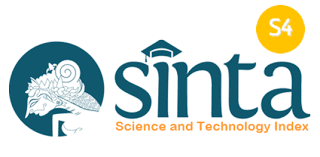Islamic Religious Education Learning Strategy based on Modelling in Fostering Student Independence
Abstract
This study aims to explain the modelling-based Islamic Religious Education (PAI) learning strategy applied at Sabilus Sholihin Socah Bangkalan Junior High School to foster student independence. The research method used is qualitative with a phenomenological approach. The results showed that the modeling-based Islamic Religious Education learning strategy in this school is based on values such as exemplary independence, creativity, and self-confidence. Through this approach, students are given relevant examples related to independence, creativity, and responsibility. The results of this study provide important insights into the importance of modeling-based learning strategies in the context of Islamic religious education in Indonesia, as well as identifying factors that support or hinder the implementation of these strategies in schools. Supporting factors in this learning strategy include school facilities and infrastructure, such as the musholla and hall, which provide support for the formation of students' independence in activities. Students are also given the opportunity to develop their independence in terms of knowledge and skills. However, the inhibiting factor lies in the lack of awareness of students and parents toward education, primarily due to economic pressure. In addition, television shows, smartphones, and social media are also inhibiting factors in the effort to foster students' independence.









